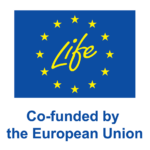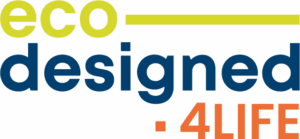First ESPR Working Plan kick-starts a more sustainable EU single market
Press release, Brussels | The European Commission’s first Working Plan for implementing the Ecodesign for Sustainable Products Regulation (ESPR) has been published. It confirms the list of priority products this policy will tackle first to improve their sustainability – with almost all products on the EU market due to be covered eventually. The list includes textile apparel, furniture, mattresses, tyres, iron and steel, and aluminium.

*** For background on the ESPR, refer to this written briefing, or get in touch to speak with an ECOS expert ***
The Ecodesign for Sustainable Products Regulation (ESPR) [1] is a major piece of legislation that will benefit consumers of almost all products [2] put on the EU single market, by ensuring sustainable design from the outset. This includes energy-intensive products like iron and steel, making it a key part of realising the EU’s Clean Industrial Deal. After its adoption in 2024, the ESPR is now being implemented in stages.
The first ESPR Working Plan [3] confirms the list of products and horizontal measures that will be tackled first. These products have the highest environmental impact and potential for improvement, so it is right they will be dealt with first, ECOS says. However, the list of priority products is shorter than what was initially promised in the ESPR.
The priority product groups
- Textile apparel [4]. This environmentally impactful sector is rightfully in the spotlight. ECOS wants to see performance requirements that ensure textiles are of high quality, more durable, reusable, repairable, and non-toxic. The ESPR must now help to eliminate negative environmental impacts throughout textile value chains.
- Furniture and mattresses. The move towards more sustainable materials is urgent. These products are often already quite durable, but they can be difficult to repair – and when they reach the end of their life, they are not always recyclable. Ecodesign can help to advance the use of innovative materials, eliminating hazardous chemicals (such as flame retardants).
- Tyres. EU legislation already addresses microplastic pollution from tyres in some ways [6], but much more is needed – and the ESPR can help to fill the gaps. ECOS wants tyres to be more durable, reusable, non-toxic [5], and meet ambitious recycled content targets.
- Iron and steel. As the first energy-intensive intermediate products [7] to be covered under the ESPR, the European Commission must be ambitious and set the bar high. The industry needs a comprehensive set of policy measures to ensure an internationally competitive and climate-neutral steel production with quality jobs in Europe.
- Aluminium.
The priority horizontal measures
- Horizontal repairability measures. Horizontal repairability measures for energy-related products are included, signalling EU support for more repairable products. There are many common features that make a horizontal approach possible and necessary (as well as faster), according to ECOS [8].
- Recycled content and recyclability of electrical and electronic equipment. It is encouraging that horizontal measures on recyclability and recycled content are prioritised, but any recycled content calculations must be done right – with traceability clauses included.
What is missing from the first Working Plan?
Sectors not mentioned above are not included in the first Working Plan, and so will not have sustainability or information requirements to adhere to until much later – 2030 at the very earliest.
While this was expected for most sectors, there are some with significant environmental impacts large enough to have been included in the first Working Plan. This plan can make a lot of progress, but there are some missed opportunities, says ECOS. For example:
- Footwear [9]: Footwear production is responsible for at least a fifth of the greenhouse gas emissions and a third of the resource use and water pollution of the entire textile and footwear industry. It is nonetheless encouraging that a study will evaluate how to improve the environmental sustainability of footwear.
- Plastics and polymers [10] and chemicals: Plastics in products have a huge impact on human health and the environment and improving this sector would have downstream effects on other products. However, it is positive that the Commission will launch a study later this year to analyse these complex sectors for future delegated acts.
Quotes
Emily Best, Programme Manager for non-toxic environment and ESPR lead at ECOS – Environmental Coalition on Standards, said:
New ecodesign rules will make the EU single market stronger, fairer, and more sustainable, levelling the playing field and rightfully starting with the most environmentally damaging products like textiles and steel. With a shorter list of priority products than initially expected, we need the Commission to use this extra bandwidth to set a high bar. This will help to protect the environment, give European businesses a competitive edge, and offer better, safer products to consumers. The single market delivering a real win-win-win!
Luca Boniolo, Programme Manager for textiles at ECOS – Environmental Coalition on Standards, said:
Every year, every European buys enough new textiles to fill a large suitcase, so it’s encouraging that textile apparel is up front and centre in the ESPR. The enormous damage our clothing habits have on the environment must be reduced. We hope to see the ambition of this Working Plan transformed into requirements that make textiles higher quality, more durable, reusable, repairable, and non-toxic. As the first non-energy-consuming product to be addressed by the new EU ecodesign rules, textile apparel will be the litmus test of this policy, so the Commission must get it right.
Thomas Trevisan, Programme Manager for buildings at ECOS – Environmental Coalition on Standards, said:
An ambitious ESPR is the best way to achieve what the EU has set out to do in its Clean Industrial Deal, so expectations are high for energy-intensive iron and steel, the first intermediate products to be tackled under this policy. To make sustainable iron and steel the norm, the ESPR must focus on performance, as well as sharing the right information. This will not be the only policy regulating iron and steel, so industry needs a clear direction – and the ESPR must give it.
Mathieu Rama, Senior Programme Manager for electronics at ECOS – Environmental Coalition on Standards, said:
The EU could spearhead the international Right to Repair movement by applying repairability measures to all electronic products, saving time and tonnes of precious materials from the bin. The product-by-product approach taken so far has led to some important achievements, but we urgently need to switch gears. We won’t be able to confront the world’s growing e-waste problem unless we act fast – and that can only happen if the Commission starts dealing with similar products at the same time.
ENDS
Notes to editors
[1] Regulation (EU) 2024/1781: https://eur-lex.europa.eu/eli/reg/2024/1781/oj/eng
[2] Exceptions in the ESPR include food, feed, medicinal products, veterinary medicinal products, living plants, animals, and micro-organisms, products of human origin, products of plants and animals, and certain aspects of vehicles which are already regulated.
[3] ESPR first Working Plan (April 2025): https://environment.ec.europa.eu/document/5f7ff5e2-ebe9-4bd4-a139-db881bd6398f_en
[4] ECOS report (April 2021), ‘Durable, repairable and mainstream: How ecodesign can make our textiles circular’: https://ecostandard.org/publications/report-durable-repairable-and-mainstream-how-ecodesign-can-make-our-textiles-circular/ | ECOS report (March 2025), ‘Less is more: Taking a sufficiency approach in EU textiles policy’: https://ecostandard.org/publications/sufficiency-textiles-policy/
[5] National Geographic, ‘Our car tires are poisoning salmon—and maybe us, too’: https://www.nationalgeographic.com/animals/article/salmon-tires-health-chemical
[6] ECOS has supported efforts to set an upper limit for tyre abrasion in vehicle emissions standards (EURO 7), as well as integrating information on levels of tyre abrasion into the EU’s tyre label.
[7] Intermediate products are unfinished goods made from materials such as steel, cement, or chemicals that require further manufacturing or transformation such as mixing, coating, or assembling to make them suitable as a product for end-users.
[8] ECOS joint letter (July 2023), ‘We need to extend the lifetime of all electronics’: https://ecostandard.org/publications/joint-letter-we-need-to-extend-the-lifetime-of-all-electronics/ | Right to Repair Europe feedback (March 2025), ‘On horizontal repairability requirements in ESPR Working Plan’: https://repair.eu/wp-content/uploads/2025/03/Right-to-Repair-Europe-Feedback-to-the-Ecodesign-Forum-discussion-on-the-first-ESPR-WP.pdf
[9] ECOS position (January 2025), ‘Ecodesign requirements for footwear’: https://ecostandard.org/publications/espr-ecodesign-footwear/
[10] ECOS position (January 2025), ‘Prioritise plastics and polymers in EU ecodesign rules’: https://ecostandard.org/publications/letter-plastics-polymers-ecodesign-espr/
Further reading
- ECOS press briefing (April 2025), ‘What’s next for ecodesign? A briefing ahead of the first ESPR Working Plan’: https://ecostandard.org/news_events/whats-next-for-ecodesign-a-briefing-ahead-of-the-first-espr-working-plan/
Contact
If you have questions, please contact:
Alison Grace
Senior Press & Communications Manager at ECOS
alison.grace@ecostandard.org
+32 493 19 22 59
ECOS – Environmental Coalition on Standards is an international NGO with a network of members and experts advocating for environmentally friendly technical standards, policies, and laws.

 Our work on ecodesign is co-funded by the European Union’s LIFE programme under the grant agreement No. 101146882. Views and opinions expressed are however those of the author(s) only and do not necessarily reflect those of the European Union or the European Climate Infrastructure and Environment Executive Agency (CINEA). Neither the European Union nor the granting authority can be held responsible for them.
Our work on ecodesign is co-funded by the European Union’s LIFE programme under the grant agreement No. 101146882. Views and opinions expressed are however those of the author(s) only and do not necessarily reflect those of the European Union or the European Climate Infrastructure and Environment Executive Agency (CINEA). Neither the European Union nor the granting authority can be held responsible for them.


